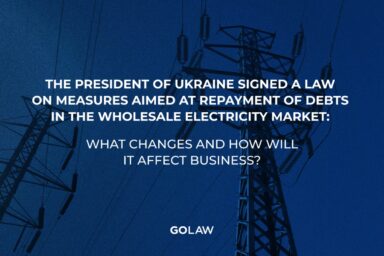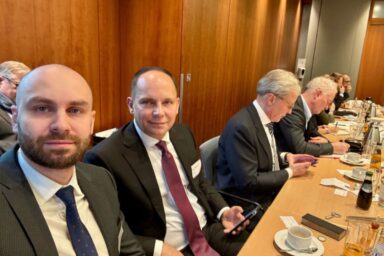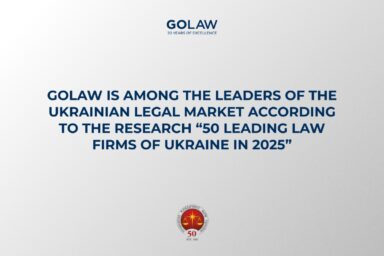Investing in renewable energy in Ukraine: how corporate PPAs ensure stability and profit
Contents
There are a number of factors that contribute to the development of renewable energy in Ukraine. One of them is the consequences of the war. As of the end of April 2024, about 13 GW of production capacity was damaged or destroyed across the country. The enemy does not stop, and although Ukraine’s energy system demonstrates resilience, the issue of restoring damaged facilities and introducing new, modern and decentralized generating facilities remains extremely relevant.
Another important factor is the country’s strategic course towards European integration, which includes the transition to sustainable development. Global trends do not allow us to delay. In 2023, total global investment in renewable energy sources and energy networks exceeded fossil fuel spending for the first time. Global investment in clean energy technologies is expected to reach $2 trillion in 2024.
It is also worth noting that Europe and the United States of America are gradually moving or have already moved from the system of support for renewable energy producers at a feed-in tariff to the use of so-called “corporate PPAs” — bilateral power purchase agreements. According to BloombergNEF (BNEF), in 2023, corporations around the world purchased a record 46 GW of clean energy through such agreements. Since 2008, corporations have signed bilateral agreements for a total capacity of 198 GW of green energy.
According to the Law of Ukraine “On the Electricity Market” (the “Law No. 2019-VIII”), bilateral contracts are electricity purchase and sale agreements concluded between two market participants outside the organized market segments (organized electricity market segment is the day-ahead market, intraday market and balancing market). The main difference between bilateral contracts is that they are contracts under which the buyer of electricity from renewable sources is not a state-owned enterprise (for example, in Ukraine it is the State Enterprise Guaranteed Buyer), but directly private companies and business representatives.
Prerequisites for concluding bilateral agreements in Ukraine
Favorable conditions for the development of bilateral agreements in Ukraine have been created by legislative innovations. Prior to the adoption of Law of Ukraine No. 3220-IX “On Amendments to Certain Laws of Ukraine on the Restoration and Green Transformation of the Energy System of Ukraine”, renewable energy producers were obliged to sell electricity under bilateral contracts only through electronic auctions. Law No. 3220-IX removed this obligation, allowing market participants to freely agree on the terms of bilateral agreements and choose counterparties.
According to the amendments, the National Energy and Utilities Regulatory Commission (NEURC) no longer has the right to set a maximum term for bilateral contracts. This allows producers to enter into long-term contracts at the project development stage, ensuring their stability.
The Law also settled the urgent issues of RES producers leaving the balancing group of the State Enterprise “Guaranteed Buyer” to sell electricity on the free market. Now, producers can enter into bilateral agreements with other buyers, having tried their hand at the free market, but with the possibility of returning to the balancing group of SE Guaranteed Buyer with all its benefits.
Another important step in the development of the Bilateral Agreements was the introduction of guarantees of origin for electricity in Ukraine. A guarantee of origin is an electronic document confirming the production of electricity from renewable energy sources, its environmental value and the rights associated with the positive effect of such energy. The launch of the Guarantees of Origin began in March 2024, and since August this year, the register of guarantees of origin, implemented using the G-REX software, has been in operation.
At the moment, the system of guarantees of electricity origin in Ukraine is already operational, and the first users are registered in the register. Recognition of Ukrainian guarantees in Europe and international trade will be possible after the NEURC fully joins the Association of Issuers, which is planned for 2025.
Thus, the legal framework for the development of bilateral agreements in Ukraine has been established, and it is now important to improve it and implement it in practice.
Types of bilateral agreements
Bilateral electricity purchase and sale agreements can be conditionally classified into three main types: physical, off-take, and virtual.
A physical PPA provides that electricity is purchased directly from the RES producer. This type of contract is used when the buyer and the producer are close to each other, which allows for a direct supply line, thus avoiding the involvement of distribution or transmission system operators. This ensures direct communication between the parties to the agreement and minimal energy transportation costs.
A bilateral Sleeve PPA is used when the buyer of electricity is located at a distance from the production facilities. In this case, it is necessary to engage a distribution or transmission system operator to act as an intermediary for the transportation of electricity to the buyer. This allows transactions between remote parties and includes additional transportation costs.
A Virtual PPA is a financial instrument in which the parties buy and sell electricity at market prices, but no physical delivery is made. Instead, a contract is concluded that ensures price stability for both parties. This helps to protect against price fluctuations in the market and provides flexibility in the financial terms of the transaction.
A derivative of the virtual PPA is the Synthetic PPA, which is generally similar to the virtual PPA but includes elements of synthetic financial instruments, such as derivatives, to manage risk and ensure financial terms. This type of agreement can be more complex due to the inclusion of financial instruments for price hedging.
Advantages of bilateral agreements
Bilateral contracts offer a number of significant advantages that make them attractive to both parties to the transaction. First, such agreements are usually concluded on a long-term basis, from 10 to 20 years, which allows both producers and buyers to plan their financial and operating costs with a greater degree of certainty. It also gives them a better chance of attracting the necessary financing for the implementation of a renewable energy project.
Second, bilateral agreements ensure transparent pricing and price stability. Such agreements often set a fixed price for electricity, which helps the parties avoid market price fluctuations and ensures financial stability.
Thirdly, the conclusion of bilateral agreements reduces financial risks that may arise from debts, such as those of the State Enterprise Guaranteed Buyer. RES producers can directly sell their electricity on different market segments and receive payment for it.
Fourth, the Bilateral Agreements are in line with global trends in sustainable development. In the face of growing requirements for ESG standards, companies using energy from renewable sources confirm their environmental commitments and increase their competitiveness in the international market.
Fifth, such agreements ensure a stable electricity supply, which is especially important in the context of a constant threat to energy infrastructure. Bilateral agreements can help consumers reduce their dependence on external factors and ensure greater independence in energy supply.
The growing global trend towards bilateral contracts emphasizes the importance of sustainable and resilient energy solutions, which is also supported in Ukraine. The introduction of the PPA market in Ukraine creates additional incentives for investment in renewable energy. Recent legislative innovations have made corporate PPAs more flexible and profitable. This creates prospects for foreign investors who can take advantage of favorable conditions for long-term investments in Ukrainian renewable energy, confirming their environmental commitments and ensuring the stability of energy supplies.

Oleksandr Melnyk
Partner, Head of Corporate Law and M&A practice, Attorney at law
- Contacts
- 31/33 Kniaziv Ostrozkykh St, Zorianyi Business Center, Kyiv, Ukraine, 01010
- o.melnyk@golaw.ua
- +38 044 581 1220

Khrystyna Zimenko
Associate
- Contacts
- 31/33 Kniaziv Ostrozkykh St, Zorianyi Business Center, Kyiv, Ukraine, 01010
- k.zimenko@golaw.ua
- +38 044 581 1220
Get in touch
To get a consultation, please fill out the form below:Related insights

06 January 2025 Energy Alert
The President of Ukraine signed a law on measures aimed at repayment of debts in...

16 December 2024 Energy Alert
Partners of GOLAW partners participated in the VII German-Ukrainian Business For...

05 December 2024 Energy Alert
GOLAW is among the leaders of the Ukrainian legal market according to the resear...
Sign up to be aware
New achievements are inspired by information. GO further, don’t miss out GOLAW news and legal alerts
Our expertise
-
- Antitrust and Competition
- Banking and Finance
- Compliance, Corporate Governance and Risk Management
- Corporate and M&A
- Criminal and White Collar Defence
- Defense in Anti-corruption procedures and regulations
- Labor and Employment
- Natural Resources and Environment
- Government Relations (GR)
- Insolvency and Corporate Recovery
- Intellectual property
- International trade
- Legal support of business and private Сlients in Germany
- Litigation and dispute resolution
- Private clients
- Real Estate and Construction
- Energy and Natural Resources
- Restructuring, Claims and Recoveries
- Martial Law
- Tax and Customs
-
- Agribusiness
- Aviation
- Chemical industry
- Engineering, Construction and Building Materials
- Natural Resources and Environment
- Financial institutions
- IT and AI
- Industry and manufacturing
- Healthcare industries, Life sciences and Pharmaceuticals
- Media, Entertainment, Sports and Gambling
- Retail, FMCG and E-Commerce
- Transport and Logistics
We use cookies to improve performance of our website and your user experience.
Cookies policy
Cookies settings



